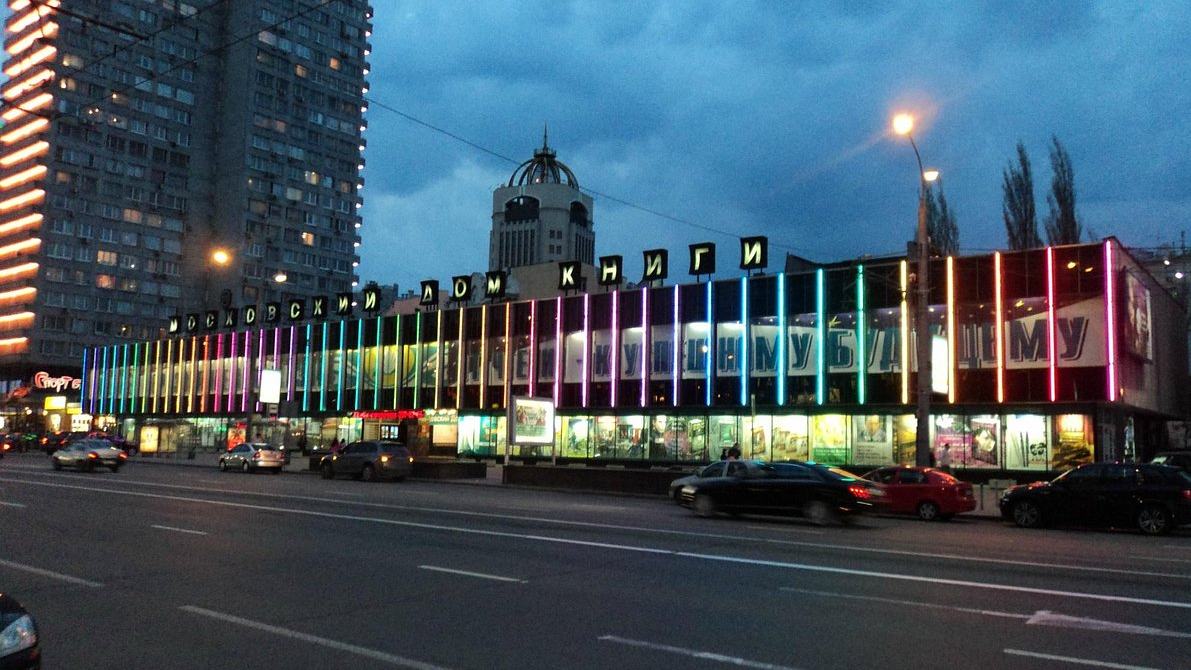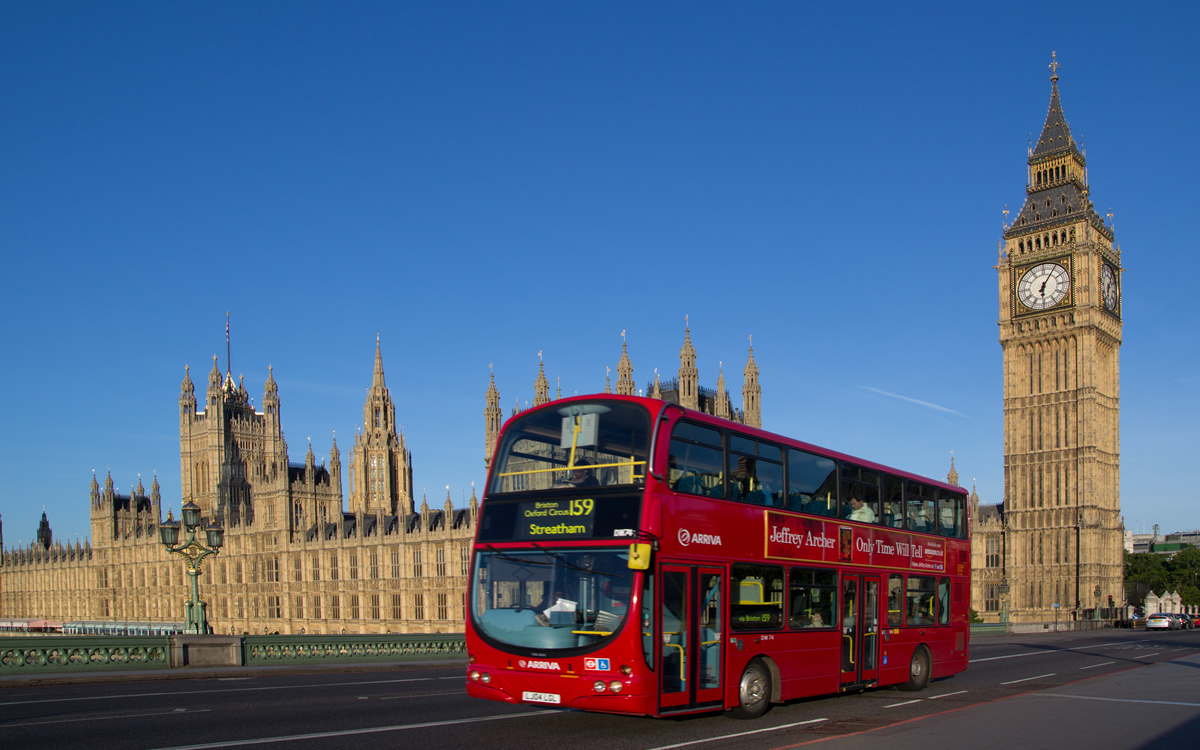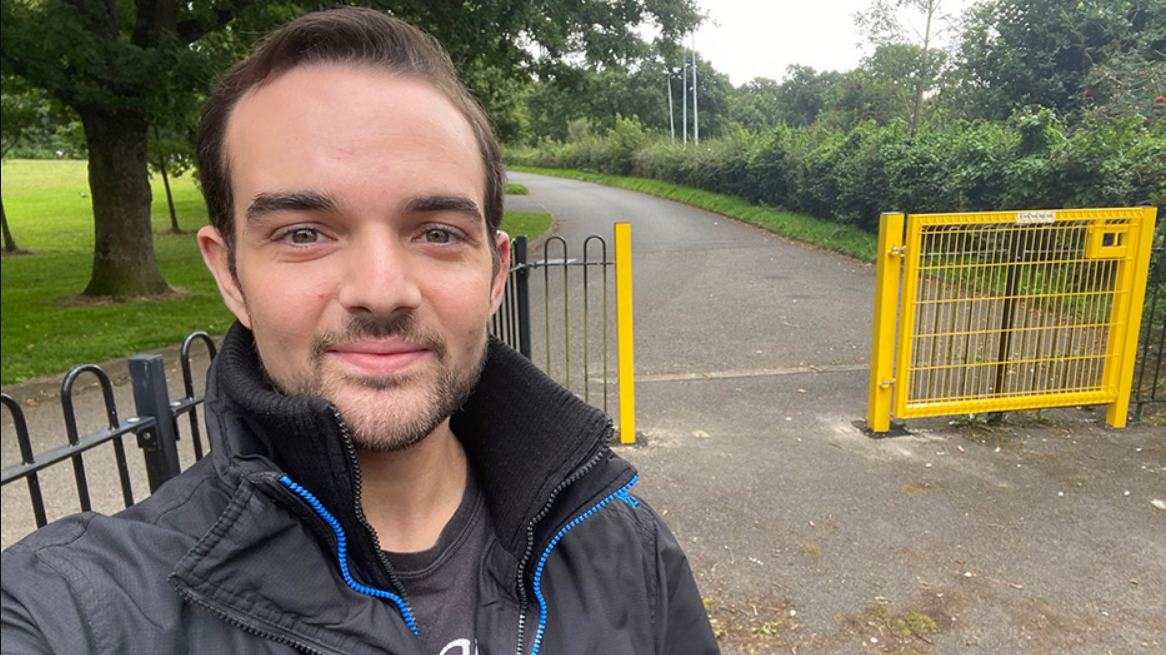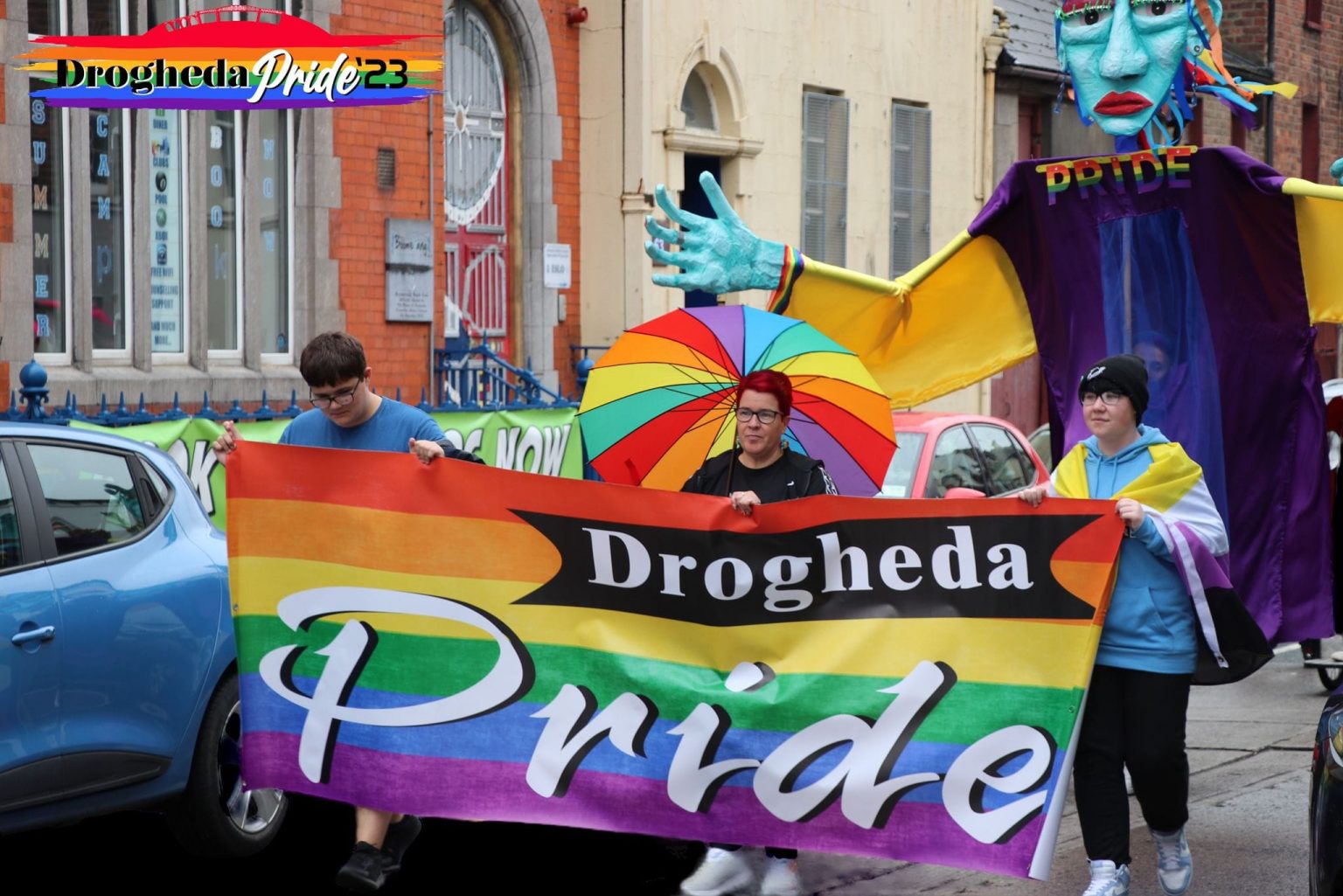World
Out in the World: LGBTQ news from Europe and Asia
Silvester Belt is first LGBTQ person to represent Lithuania in Eurovision

RUSSIA

Russia’s largest publishing houses working in concert with the country’s libraries and book sellers formed an advisory union body earlier this month to address the increasingly repressive nature of laws centered around the subject matters of LGBTQ people and the war in Ukraine.
Making the task difficult is removal of materials from classic Russian literature in addition to contemporary works. Russian media outlet Vedomosti business daily reported that the Russian Book Union’s self-labeled expert center will issue recommendations on individual books, but leave the final decision to pull the books from sale up to the publishers.
According to Vedomosti, AST, one of Russia’s largest publishers, announced earlier this week that it would suspend sales of three books by U.S. authors James Baldwin and Michael Cunningham, as well as the Russian postmodern writer Vladimir Sorokin, for allegedly containing “LGBTQ propaganda,” which is now outlawed in the country.
Roberto Carnero, an Italian literature professor at the University of Bologna’s biographical who wrote a book on the openly gay Italian film director Pier Paolo Pasolini had been heavily edited with some 70 out of its 400 pages containing sections that were redacted by its Russian publisher, Reuters reported last week.
According to Carnero, speaking with the wire service, that publisher also AST, would only agree to publish his critical essay on Pasolini only with severe cuts.
“I am very concerned about this,” he said in a phone interview from Milan. “This is something that happens in dictatorships.”
The striking images of Carnero’s book have thrown a spotlight on issues of government censorship in Russia at a time when the Kremlin says it is fighting an existential war with the West to defend its “traditional values,” Reuters noted.
English language media outlet the Moscow Times reported that Russian law allows citations for scientific, educational, and critical purposes. If brought to court, Russian publishers would be forced to prove that they retold an unlicensed book for purposes that do not include entertainment.
Russian law firms say publishers risk being hit by lawsuits and fined double the value of books sold if their summaries hew too close to the original text.
LITHUANIA

A singer-songwriter who has been entertaining audiences since he was 12-years-old is now the first openly queer person to represent Lithuania at the Eurovision Song Contest this year.
Silvester Belthe in 2010 had been a finalist in Lithuania’s preselection for the Junior Eurovision Song Contest that year and now he returns 14 years later at age 26 taking the contest by storm.
A veteran of the musical variety contest show circuit, he competed on the Lithuanian version of the “X Factor,” and the Baltic TV3 Group’s music show “Aš – superhitas,” which he won in 2017.
PinkNewsUK reported Eurovision 2024 marks Belthe’s biggest career move to-date, and so far, it’s going well. His song, hypnotic eurobanger “Luktelk,” has hit over five million Spotify streams worldwide. In Lithuania, it hit number on the charts and stayed there for several weeks.
In an interview with PinkNewsUK when asked about LGBTQ representation in his homeland’s music scene. he responded: “Zero. It’s nada. It’s non-existent,” says Belt. “Everyone is pretending to be what they’re not, and it pisses me off so much.”
Eurovision has been supportive of LGBTQ musical artists for decades, but Lithuania has never sent an out artist to the contest. According to Belthe there is a culture of fear among Lithuanian artists about being seen as queer, as they feel there is “so much at stake” and that they could “lose [their] career” if they were to ever come out he noted.
The main reason he is frustrated by the lack of LGBTQ representation in his country he tells PinkNewsUK is that he thinks it would change the population’s mindset. Six in 10 Lithuanians still believe that same-sex relationships are “wrong.”
“If every single LGBTQ artist in Lithuania, not even artists, if everyone [would] come out, I feel like Lithuania would change in a day,” he says. “It’s just crazy that we have this massive elephant in the room and we’re just pretending it’s not there.”
UNITED KINGDOM

At the end of last month Deputy Foreign Secretary Andrew Mitchell announced sanctions on high profile Ugandan politicians charged with corruption, and the speaker of the Parliament of Uganda.
It is the first time the UK government has used the Global Anti-Corruption Sanctions regime on individuals involved in corruption in Uganda.
The three individuals, two of whom were previously ministers responsible for Uganda’s poorest region, Karamoja, and have been charged with corruption at Uganda’s Anti-Corruption Court, will be subject to travel bans and asset freezes.
The two former ministers sanctioned — Mary Goretti Kitutu and Agnes Nandutu — stole thousands of iron sheets used for roofing and infrastructure from a Ugandan government-funded project aimed at housing some of the most vulnerable communities in the region, providing them to prominent politicians and their families instead.
Parliament Speaker Anita Annet Among benefited from the proceeds.
Over 60 percent of people in Karamoja live in poverty and many suffer from the devastating impacts of drought and insecurity.
Mitchell said in a media statement:
“The actions of these individuals, in taking aid from those who need it most, and keeping the proceeds, is corruption at its worst and has no place in society. The Ugandan courts are rightly taking action to crack down on those politicians who seek to line their own pockets at their constituents’ expense.
Today the UK is sending a clear message to those who think benefiting at the expense of others is acceptable. Corruption has consequences and you will be held responsible,” Mitchell added.
The three individuals sanctioned were:
- Anita Annet Among, who has been the speaker of the Parliament of Uganda since 2022.
- Mary Goretti Kitutu, who was the Minister for Karamoja Affairs between 2021 and 2024.
- Agnes Nandutu, who was the State Minister for Karamoja Affairs between 2021 and 2024.
These measures follow previous UK sanctions under the Global Anti-Corruption sanctions regime, which has targeted individuals involved in serious corruption cases across the world, including Bulgaria, Lebanon, Moldova, Russia, South Africa, South Sudan, and Venezuela.
Since its introduction in April 2021, the UK has introduced sanctions on 42 individuals and entities under this regime globally to combat corruption across the world.

A fully inclusive rugby club, with the majority of their members being part of Berkshire’s LGBTQ community, competes against other inclusive teams from across the world.
Recently the club won the International Gay Rugby UK league for the first time in their seven year history. John Hamp, the tighthead prop, one of the three players who form the front row of the scrum, told the BBC that being part of an LGBTQ inclusive club meant “you don’t have to hide any part of yourself.”
“With any inclusive rugby team, the need is that there are people who really enjoy rugby and really enjoy the sport, but haven’t necessarily found their home in a traditional club setup,” Hamp said.
“We provide a home and a welcoming environment where anyone and everyone can come and learn the sport,” he added.
Hamp, who is also the teams’ communications manager, told the BBC an inclusive club meant “regardless of any of your defining features or characteristics, especially for us that includes a sexual orientation, you can join our club and find a safe and welcoming environment — somewhere that you can be yourself.”
“I have a rugby family, and I tried as a child, and it just didn’t feel right for me — I knew that I was a bit different, I think other people knew that I felt different, and it didn’t feel comfortable for me,” he said.
“Sadly my my father passed away and I needed to do something; I needed something different — there was a need to be with community that understood me and a connection that I wanted to get back involved in rugby.”
“So I found the unicorns, and it was the perfect marriage of those two things.”
The club was founded in 2016, and has grown in size to over 50 playing and social members. This season, the team went unbeaten, scoring over 400 points across their 11 games in the process.
NORTHERN IRELAND

For the first time in the 132 history of the largely ceremonial role of Lord Mayor of Belfast, an openly gay man has been chosen. Micky Murray, an Alliance Party city councilman representing the Balmoral area, was selected to succeed the outgoing Sinn Féin’s Ryan Murphy in June.
On his X account Murray stated: “It’s truly an honor to have been selected by my party to be the next Lord Mayor of Belfast in June. This is a significant moment for the LGBTQ+ community, as I step into a role which has never represented us before. I look forward to getting stuck in!”
The 32-year-old politico in an interview with LGBTQ media outlet GCN Ireland said:
“In my role as Lord Mayor I want to meet people in all areas of Belfast and recognise those who are making a difference in every quarter, finding ways to work alongside them for the better.
He added: “Supporting the most vulnerable is a priority of mine, and I want to use my experience working in the homeless sector to ensure our city does more to help people.”
“I want to help transform Belfast into a more inclusive city where everyone can enjoy, regardless of who you are or where you’re from. We’re 26 years on from the Good Friday Agreement and we were promised peace, which has largely been delivered, but now is the time to further break down barriers and create a thriving city.
Our city should be recognized for its inclusivity, rather than its division. As the first openly gay Lord Mayor, I want to use this platform to represent the LGBTQ+ community and be a positive role model for them.”
In an interview with the Belfast Telegraph Murray said: “As a schoolboy who was badly bullied because of my sexuality, I never thought I’d have the privilege of serving in a role like this.”
The councilman continued: “The position of Lord Mayor has existed for over 130 years, and I’ll be the first openly LGBTQ person to hold it. It’s a huge honor for me personally to be given this opportunity by my party colleagues.
While some people may question why my sexuality is relevant, it does matter for members of my community. We are finally represented in a role we’ve never been before. It’s imbued with symbolism.”
IRELAND

Pride is back again this year for Drogheda, an industrial and port town in County Louth on the east coast of Ireland, 26 miles north of Dublin. The four-day festival which kicks off on July 18, will include live musical performances, dance parties, film screenings, and family-friendly events.
This year’s event promises to be a fantastic experience, with preparation well underway and organizer Peter James Nugent told GCN Ireland. Nugent is working on the four-day festival, which will include live music performances, dance parties, film screenings, and family-friendly events.
This year’s parade will take place on July 20. Following the parade, talented local musical artist Kobrah Kage will headline the main event with a highly-anticipated performance.
GCN also reported that Festival organizers are also calling upon anyone with a talent, be it a drag queen, a singer, a dancer, or any other talent, to apply to be a part of the 2024 fantastic event. This is a great opportunity for the local community to showcase their support and join in the celebrations. A complete listing of events is available on Drogheda Pride’s socials and their website.
Additional reporting from the BBC, PinkNewsUK, The Moscow Times, Agence France-Presse the Belfast Telegraph, and GCN Ireland.
India
Activists push for better counting of transgender Indians in 2026 Census
2011 count noted 488,000 trans people in country

India is preparing to conduct a nationwide Census in April, the first since 2011.
Interim projections based on the previous Census placed India ahead of China as the world’s most populous country. A Technical Group on Population Projections projection in July 2020, chaired by the Registrar General of India, estimated the country’s population in 2023 was 1.388 billion. Transgender Indians are now raising concerns about the data collectors and their sensitization.
Activists have raised concerns about whether data collectors are adequately sensitive to the community ahead of the Census. Government training material emphasizes household engagement, data privacy and sensitivity while asking personal questions, but publicly available flyers do not outline specific guidance or training related to recording trans identity during enumeration.
Concerns around the counting of trans people in India are not new.
The 2011 Census recorded around 488,000 trans people, a figure activists and researchers have described as a likely undercount due to stigma, misclassification, and a reluctance to self-identify. Subsequent surveys and field reports have pointed to inconsistencies in how gender identity is recorded and the absence of uniform sensitivity among Census data collectors. Rights groups and policy researchers have also warned that gaps in official data affect access to welfare schemes, legal recognition, and targeted public policy, making accurate counting central to future Census exercises.
A decade after the 2011 Census formally recorded trans people as a distinct category, multiple studies have continued to document entrenched socio-economic disparities. Research has pointed to lower literacy rates, limited workforce participation and barriers to healthcare access within the community.
A National Human Rights Commission-supported study cited in subsequent reporting found a significant proportion of trans respondents reported employment discrimination, underscoring the gap between formal recognition and lived economic inclusion.
Educational exclusion has remained a persistent concern within the trans community. Studies have documented higher dropout rates, lower literacy levels and barriers to continuing education, often linked to stigma, discrimination and limited institutional support. Policy researchers note that despite formal recognition in official data after 2011, targeted interventions addressing school retention and access for trans people have remained uneven.
Access to housing schemes has reflected similar gaps.
The Washington Blade in December reported only a small number of trans people have benefited from India’s flagship low-income housing program, despite its nationwide rollout and eligibility provisions. The findings underscored continuing barriers to inclusion in welfare delivery systems.
The Social Justice and Empowerment Ministry and the Office of the Registrar General and Census Commissioner did not respond to the Blade’s multiple requests for comment regarding sensitization measures for Census data collectors and the recording of trans identity in the upcoming Census.
Karnataka state in southern India last September conducted its first statewide baseline survey of gender minorities. The Department of Women and Child Development, in collaboration with the Karnataka State Women’s Development Corporation, launched the initiative to document the lives of trans people across 31 administrative districts.
When the results were released, the survey identified 10,365 trans people. The country’s 2011 Census, by comparison, recorded 20,266 trans people in Karnataka, nearly double the 2025 figure. The discrepancy raised questions about how the state’s recorded trans population appeared to decline over 14 years.
The discrepancy in Karnataka’s survey has intensified scrutiny over how gender minorities are counted. Reports questioned the methodology used in the 2025 exercise, which was conducted over 45 days beginning in mid-September. Instead of door-to-door enumeration, trans people were required to report to designated registration sites — primarily district-level public hospitals and sub-district government health facilities. The approach presented barriers for potential participants, particularly those in rural areas, those without reliable transportation, those wary of institutional settings due to prior discrimination, or those who did not know about the count, raising the possibility of exclusion.
Bihar state in eastern India in January 2023 conducted a caste-based survey that included trans respondents.
The final report identified 825 trans people in the state, compared with 40,827 recorded in the 2011 Census. Activists disputed the figure, calling it inaccurate and pointing to community estimates that suggested higher numbers, including in Patna, the state capital, raising concerns about significant undercounting.
The 2011 Census marked the first attempt to enumerate trans people at the national level, but researchers and activists have described the exercise as limited in scope.
It recorded 487,803 people under the “other” category, a classification used for respondents who did not identify as male or female. Analysts have argued that the figure likely underestimated the community’s size.
The Census questionnaire provided three sex categories — “male,” “female,” and “other” — a framework that critics said did not fully capture the diversity of gender identity and may have affected how some respondents chose to identify.
During the 2011 Census, enumeration practices varied across regions.
In states such as Tamil Nadu, local reporting indicated estimates were at times derived from existing administrative records, including state-issued trans identity cards, rather than solely through door-to-door identification. Such approaches risked excluding individuals who did not possess identity documentation or were not registered with welfare boards, raising concerns about gaps in coverage.
Official data from the Social Justice and Empowerment Ministry shows only a few hundred trans people as of early 2025 have been issued identity cards through the national portal, despite nearly 2,000 applications being submitted. Many are still pending or have been rejected.
Critics of the 2011 Census said many Census data collectors were not adequately trained or sensitized to engage with gender identity beyond traditional binary classifications. Similar, detailed guidelines specific to trans sensitization have not been publicly made available for the 2026 Census, according to an examination of training materials and official circulars.
Akkai Padmashali, a trans rights activist, told the Blade that Census data collectors in earlier exercises were often not sensitized and lacked awareness of intersex people and gender-diverse communities. She said trans people and other gender and sexual minorities continue to face social exclusion and require careful handling during door-to-door data collection. Padmashali called for targeted training of data counting officers and said the government should treat the issue as a priority, adding the trans population is likely to be higher than what was recorded in 2011 and efforts to make officials more sensitive to the community are necessary.
“We will definitely join our hands with this move the government of India has taken,” said Padmashali. “I think there should be proper guidance from the main in-charge people who are conducting this enumeration, and if no such proper information is given to these Census data collectors, it is difficult to gather any sort of information concerned.”
“This whole issue of self-identification — I think India, in its current situation, is not in such a way that it openly accepts people’s identities,” she added. “It will be challenging, it will be difficult, it will be a struggle to offer people the opportunity to express their identities as concerned. But to make sure those who are part of the sexual minority community are counted, I think we also take responsibility for educating people to be part of the enumeration.”
Padmashali said many people are not accustomed to using mobile devices and only a limited number are familiar with them. She said technology should not mislead or misguide the collection of information. Padmashali added she and other trans people plan to engage with Census data collectors and officials who organize the Census.
“Government should have local meetings,” said Padmashali. “Government should hold regional consultations on why the national enumeration is important, because we also know that from 2011 to 2026 is almost 15 years, and now we are here.”
“The government should hold local meetings, especially in their constituencies,” she added. “If the government meets with non-government organizations and civil society groups, this could become a more inclusive exercise across the country. India has a population of more than 1.4 billion, and I think this is the appropriate time to bring accurate statistics to help draft policies in the context of the larger community concerned.”
Books
New book profiles LGBTQ Ukrainians, documents war experiences
Tuesday marks four years since Russia attacked Ukraine

Journalist J. Lester Feder’s new book profiles LGBTQ Ukrainians and their experiences during Russia’s war against their country.
Feder for “The Queer Face of War: Portraits and Stories from Ukraine” interviewed and photographed LGBTQ Ukrainians in Kyiv, the country’s capital, and in other cities. They include Olena Hloba, the co-founder of Tergo, a support group for parents and friends of LGBTQ Ukrainians, who fled her home in the Kyiv suburb of Bucha shortly after Russia launched its war on Feb. 24, 2022.
Russian soldiers killed civilians as they withdrew from Bucha. Videos and photographs that emerged from the Kyiv suburb showed dead bodies with their hands tied behind their back and other signs of torture.

Olena Shevchenko, chair of Insight, a Ukrainian LGBTQ rights group, wrote the book’s forward.

The book also profiles Viktor Pylypenko, a gay man who the Ukrainian military assigned to the 72nd Mechanized Black Cossack Brigade after the war began. Feder writes Pylypenko’s unit “was deployed to some of the fiercest and most important battles of the war.”
“The brigade was pivotal to beating Russian forces back from Kyiv in their initial attempt to take the capital, helping them liberate territory near Kharkiv and defending the front lines in Donbas,” wrote Feder.
Pylypenko spent two years fighting “on Ukraine’s most dangerous battlefields, serving primarily as a medic.”
“At times he felt he was living in a horror movie, watching tank shells tear his fellow soldiers apart before his eyes,” wrote Feder. “He held many men as they took their final breaths. Of the roughly one hundred who entered the unit with him, only six remained when he was discharged in 2024. He didn’t leave by choice: he went home to take care of his father, who had suffered a stroke.”
Feder notes one of Pylypenko’s former commanders attacked him online when he came out. Pylypenko said another commander defended him.
Feder also profiled Diana and Oleksii Polukhin, two residents of Kherson, a port city in southern Ukraine that is near the mouth of the Dnieper River.
Ukrainian forces regained control of Kherson in November 2022, nine months after Russia occupied it.
Diana, a cigarette vender, and Polukhin told Feder that Russian forces demanded they disclose the names of other LGBTQ Ukrainians in Kherson. Russian forces also tortured Diana and Polukhin while in their custody.
Polukhim is the first LGBTQ victim of Russian persecution to report their case to Ukrainian prosecutors.

Feder, who is of Ukrainian descent, first visited Ukraine in 2013 when he wrote for BuzzFeed.
He was Outright International’s Senior Fellow for Emergency Research from 2021-2023. Feder last traveled to Ukraine in December 2024.
Feder spoke about his book at Politics and Prose at the Wharf in Southwest D.C. on Feb. 6. The Washington Blade spoke with Feder on Feb. 20.
Feder told the Blade he began to work on the book when he was at Outright International and working with humanitarian groups on how to better serve LGBTQ Ukrainians. Feder said military service requirements, a lack of access to hormone therapy and documents that accurately reflect a person’s gender identity and LGBTQ-friendly shelters are among the myriad challenges that LGBTQ Ukrainians have faced since the war began.
“All of these were components of a queer experience of war that was not well documented, and we had never seen in one place, especially with photos,” he told the Blade. “I felt really called to do that, not only because of what was happening in Ukraine, but also as a way to bring to the surface issues that we’d had seen in Iraq and Syria and Afghanistan.”

Feder also spoke with the Blade about the war’s geopolitical implications.
Russian President Vladimir Putin in 2013 signed a law that bans the “promotion of homosexuality” to minors.
The 2014 Winter Olympics took place in Sochi, a Russian resort city on the Black Sea. Russia annexed Crimea from Ukraine a few weeks after the games ended.
Russia’s anti-LGBTQ crackdown has continued over the last decade.
The Russian Supreme Court in 2023 ruled the “international LGBT movement” is an extremist organization and banned it. The Russian Justice Ministry last month designated ILGA World, a global LGBTQ and intersex rights group, as an “undesirable” organization.
Ukraine, meanwhile, has sought to align itself with Europe.
Ukrainian President Volodymyr Zelenskyy after a 2021 meeting with then-President Joe Biden at the White House said his country would continue to fight discrimination based on sexual orientation and gender identity. (Zelenskyy’s relationship with the U.S. has grown more tense since the Trump-Vance administration took office.) Zelenskyy in 2022 publicly backed civil partnerships for same-sex couples.
Then-Ukrainian Ambassador to the U.S. Oksana Markarova in 2023 applauded Kyiv Pride and other LGBTQ and intersex rights groups in her country when she spoke at a photo exhibit at Ukraine House in D.C. that highlighted LGBTQ and intersex soldiers. Then-Kyiv Pride Executive Director Lenny Emson, who Feder profiles in his book, was among those who attended the event.
“Thank you for everything you do in Kyiv, and thank you for everything that you do in order to fight the discrimination that still is somewhere in Ukraine,” said Markarova. “Not everything is perfect yet, but you know, I think we are moving in the right direction. And we together will not only fight the external enemy, but also will see equality.”
Feder in response to the Blade’s question about why he decided to write his book said he “didn’t feel” the “significance of Russia’s war against Ukraine” for LGBTQ people around the world “was fully understood.”
“This was an opportunity to tell that big story,” he said.
“The crackdown on LGBT rights inside Russia was essentially a laboratory for a strategy of attacking democratic values by attacking queer rights and it was one as Ukraine was getting closet to Europe back in 2013, 2014,” he added. “It was a strategy they were using as part of their foreign policy, and it was one they were using not only in Ukraine over the past decade, but around the world.”
Feder said Republicans are using “that same strategy to attack queer people, to attack democracy itself.”
“I felt like it was important that Americans understand that history,” he said.
Netherlands
Rob Jetten becomes first gay Dutch prime minister
38-year-old head of government sworn in on Monday

Rob Jetten on Monday became the Netherland’s first openly gay prime minister.
Jetten’s centrist D66 party won the country’s elections last October, narrowly defeating Geert Wilders’ far-right Party for Freedom.
King Willem-Alexander on Monday swore in Jetten, who is also the country’s youngest-ever prime minister. The Associated Press notes Jetten’s coalition government includes the center-right Christian Democrats and the center-right People’s Party for Freedom and Democracy.
“Proud to be able to do this together,” said Jetten in an X post before Willem-Alexander swore him in.
COC Nederland, a Dutch LGBTQ advocacy group, in a statement said Jetten “becoming prime minister shows that your sexual orientation doesn’t have to matter.”
“You can become a construction worker, a doctor, a lawyer, and even prime minister,” said COC Nederland.
The advocacy group noted Jetten has said his government will implement its “Rainbow Agreement” that include calls for strengthening nondiscrimination laws “to better protect transgender and intersex people,” appointing more “discrimination investigators … to address violence against LGBTQ+ people and other minorities,” and introducing measures “to promote acceptance in schools.”
“COC will hold the Cabinet to that promise,” said COC Nederland.
Jetten’s fiancé is Nicolás Keenen, an Argentine field hockey player who competed in the 2024 Summer Olympics in Paris.
Jetten is one of two openly gay heads of government: Andorran Prime Minister Xavier Espot Zamora came out in 2023. Gay Latvian President Edgars Rinkēvičs, who is the country’s head of state, took office in 2023.
Leo Varadkar, who was Ireland’s prime minister from 2017-2020 and from 2022-2024, and Xavier Bettel, who was Luxembourg’s prime minister from 2013-2023, are gay. Ana Brnabić, who was Serbia’s prime minister from 2017-2024, is a lesbian.
Former Icelandic Prime Minister Jóhanna Sigurðardóttir in 2009 became the world’s first openly lesbian head of government. Former Belgian Prime Minister Elio Di Rupo, former San Marino Captain Regent Paolo Rondelli, and former French Prime Minister Gabriel Attal are also openly gay.
Colombian presidential candidate Claudia López, who is the former mayor of Bogotá, the Colombian capital, would become her country’s first female and first lesbian president if she wins the country’s presidential election that is taking place later this year.
-

 Mexico5 days ago
Mexico5 days agoUS Embassy in Mexico issues shelter in place order for Puerto Vallarta
-

 Netherlands4 days ago
Netherlands4 days agoRob Jetten becomes first gay Dutch prime minister
-

 Sports4 days ago
Sports4 days agoMore than a dozen LGBTQ athletes medal at Olympics
-

 Books3 days ago
Books3 days agoNew book profiles LGBTQ Ukrainians, documents war experiences
















